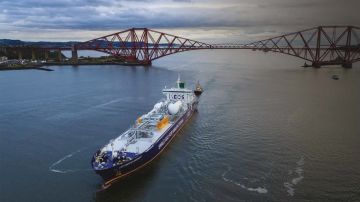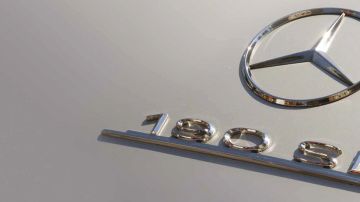Just over ten years ago INEOS made a momentous decision. It bought BP’s INNOVENE business for $9 billion. Part of the deal was the acquisition of a site close to Köln in Germany
THE future for BP’s petrochemicals site in Köln looked uncertain.
BP had lost interest in manufacturing chemicals and was looking to either spin off or sell the business so it could focus on its more profitable core business of producing oil and gas.
But where BP saw no future for chemicals, INEOS saw huge opportunities for INNOVENE. And within months it had bought the oil giant’s olefins and derivatives and refining subsidiary in a deal worth $9 billion – and, with it, the Köln site.
For the staff there was little time to be worried.
Within weeks, INEOS, a virtually unknown entity to most of them, had started to make positive changes to how the business was run.
The focus immediately shifted back to the core strengths of the site – safety, manufacturing excellence, and its customers.
“I remember being relieved because INEOS’ approach was so different to BP’s,” said Dr Axel Goehrt, the former operational site services manager who is now Managing Director Production and Technical Matters. “Staff very quickly saw differences.”
There were new management structures and staff were tasked with cutting out avoidable expenses. Act like owners, they were told. Spend money as if it were your own, they were asked.
“INEOS was seen as straightforward,” said Dr Patrick Giefers, BP’s former legal and HR manager who is now Commercial Managing Director and Works Manager.
“There were no politics and in the early days it was very smooth to discuss any concerns with INEOS Capital which helped enormously because we could clarify any concerns very quickly.”
While traditional chemical companies often tended to be conservative with massive overheads, INEOS was a refreshingly young company with a lean, keen management team.
For some, though, it did take longer to acclimatise to the fact that BP had sold the business to a company which was now, literally, indebted to the banks to the tune of $9 billion.
“The German people are careful and they are not used to debt,” said Patrick. “For some, it was hard at first.”
What convinced them that INEOS’ was the right company for the job was when it began to invest in the site.
Within six months INEOS had announced plans to spend around €40 million on expanding the cracker capacity at Köln, which would allow the site to produce about 100,000 extra tonnes of ethylene every year.
That extra ethylene would be used to either produce polyethylene or supply other INEOS sites via the ARG pipeline system.
Over the past 10 years that investment – that belief that the staff have the drive and know-how to make things happen – has continued.
Since INEOS acquired the site 10 years ago, it has invested just under €700 million in the plant and production has increased. The year BP sold the business, it spent almost €144 million alone on the site.
Process safety is now back where it should be – at the top of the site’s priority list.
Since 2006 the OSHA frequency has constantly improved. So far the site’s best year in safety was in 2013 when the frequency was as low as 0.13.
Its customer service team – then based in Belgium and the UK – was moved to Germany, which meant staff could talk directly with technicians and colleagues in the production plants.
INEOS has always spent its money wisely – on new plants, debottlenecking of infrastructure and making changes that will ultimately benefit the customers.
“We don’t fly business class but INEOS looks after us in other ways,” said Axel.
In 2013, it doubled the size of its isoamylene plant and cemented its position as a world-scale producer of a raw material that could be used in a wide range of specialty markets including fragrances, agrochemicals, peroxides, polymer antioxidants and hydrocarbon resins.
The project was done safely, efficiently and on budget.
“It was testament to the high operational and engineering standards upheld at the site,” Karel Brabant, Operations Director of INEOS Oligomers, said at the time.
The key to Köln’s success is perhaps embedded in the German way of running assets and the British way of running a business.
“Quality matters to us,” said Axel. “We look to the long-term quality of the assets. That’s why we are benefiting from our grandfather’s workmanship. Also the relationship with the unions and the works council is very constructive. Over the past 40 years we have not had a single strike.”
Looking ahead, INEOS is planning to invest even more in the site to help develop its portfolio of products with higher profit margins.
This year alone, about €100 million will be spent on expanding the plant and improving the infrastructure.
“INEOS would not be investing if they did not think they could get a return on that investment,” said Patrick. “So the staff know what they have to do. INEOS is putting a lot of money our way. We now have to make sure we meet the expectations.”


















